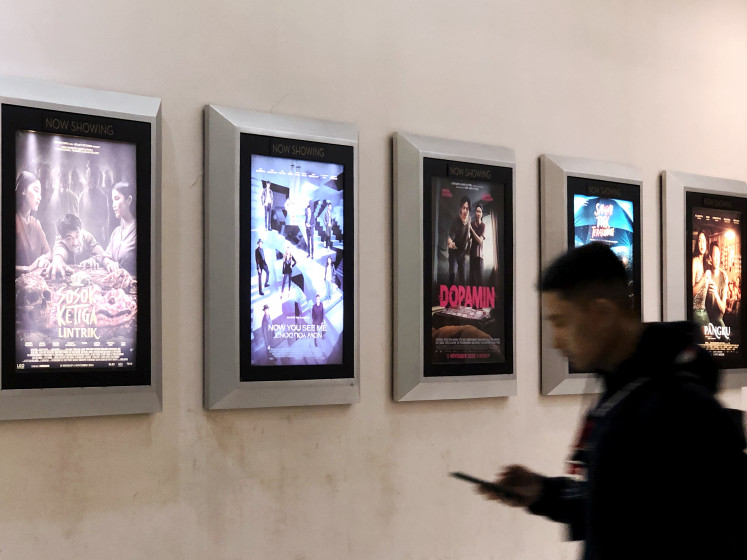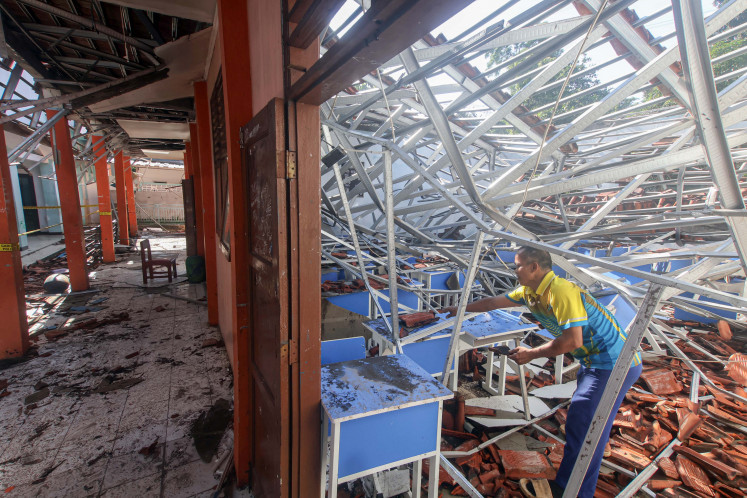Popular Reads
Top Results
Can't find what you're looking for?
View all search resultsPopular Reads
Top Results
Can't find what you're looking for?
View all search resultsElectronic road pricing hoped to pay for free transportation
Congestion and poor public transportation are just two of many problems faced by the city administration
Change text size
Gift Premium Articles
to Anyone
C
ongestion and poor public transportation are just two of many problems faced by the city administration.
Numerous policies have been planned and some are being implemented, but a way out from traffic-choked roads is still a pipe dream.
The long-planned electronic road pricing (ERP) system is hoped to provide an answer to these issues.
Jakarta Governor Basuki “Ahok” Tjahaja Purnama said recently that his administration would try to accelerate the implementation of ERP, which is set to become the flagship system to restrict the number of vehicles in the capital following the recent revocation of the three-in-one rule.
Rather than just limit the number of vehicles, the administration hopes that ERP would serve as a tool to achieve free public transportation in the city.
Funds earned from ERP, Ahok added, would be used to subsidize public transportation and thereby ease the financial burden of Jakarta residents.
“I want people not to pay for buses. Hence, if the ERP is implemented soon and its operation goes well, we will have greater income. Later, residents will not have to pay to take buses. This will ease living in the capital,” Ahok said.
He added that the administration did not mind spending up to Rp 5 trillion (US$376 million) on ERP if it could help with providing free transportation.
ERP has been a long-delayed project initiated by city authorities.
The administration has already had ERP gates installed on Jl. Sudirman and Jl. HR Rasuna Said in South Jakarta by two companies from Sweden and Norway for trials that commenced in 2014. It has also distributed dozens of on-board units (OBU) to car owners who frequently pass through the two points.
However, it has delayed the ERP implementation several times for various reasons. In the latest delay, the administration encountered difficulties in establishing an ERP management unit (BLUD) and in transferring management authority to the BLUD from the Jakarta Financial and Asset Management Board (BPKAD).
The ERP plan resurfaced following the revocation of the three-in-one system, in which only cars carrying at least three people were allowed to access major roads at certain times, including Jl. Sudirman and Jl. Medan Merdeka Barat in Central Jakarta.
Last week, Transportation Agency head Andri Yansyah said the system would probably be implemented in early 2017 as the project was still in the preparation process for bidding.
He explained that the administration was currently preparing a gubernatorial regulation as the legal basis.
In April, ERP BLUD head Zulkifli said the administration had to delay the implementation of ERP because it had to alter the investment scheme between the administration and bidders.
In doing so, he added, the administration planned to change the scheme from profit-sharing to investment bidding with gradual investment returns.
He added that after the change, the administration would have to further examine its options for regulating ERP in the capital.










